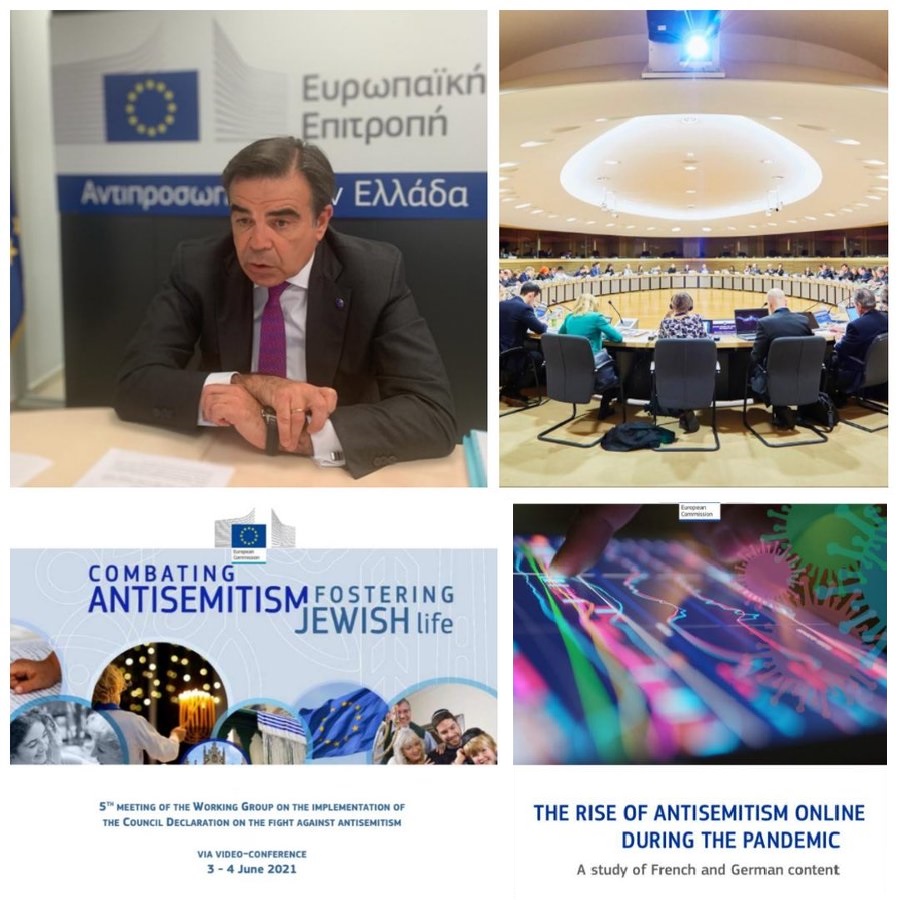5th Meeting of the Working Group on combating antisemitism

The aim of the Strategy is threefold: I) to prevent and combat all forms of antisemitism (online and offline), II) to foster Jewish life and safeguard Jewish heritage and III) to ensure and strengthen Holocaust remembrance, education and research. These objectives form the pillars that will guide the development of the Strategy inside and outside the EU. Each session focused on one of these pillars.
The first session on 'Preventing and combating all forms of antisemitism', comprised of two separate panel discussions on combating online and offline antisemitism. Panellists and participants discussed the new challenges faced by the spread of online hate, the real consequences and links to the physical world and how best to tackle and address all forms of antisemitism in order to ensure a safe Europe for all citizens, on all spheres of life. Behind the backdrop of the newly published study on The rise of antisemitism online during the pandemic. A study of French and German content, that shows a seven-fold increase in antisemitic content on Twitter, Facebook and Telegram in French, and over a thirteen-fold increase in antisemitic content in German, participants agreed that urgent action need to be taken in order to address antisemitism online and that more cooperation with internet platforms is required in order to stop the proliferation of disinformation and conspiracy theories that endangers the lives of Jews in Europe.
Furthermore, participants regarded as most important the need to increase awareness about Jewish life and culture as well as Jewish history, customs and practices as part of the efforts to foster Jewish life and safeguard Jewish heritage. The second session explored therefore how the EU could support and foster a vibrant Jewish life in all its diversity in Europe. Ensure security at all levels and strengthen legislation were two other measures that were put forward by participants as the main actions to be featured in the new strategy.
The third session on 'Holocaust remembrance, education and research' touched upon the need to preserve historical memory and encourage research, explore new ways to advance education about the Holocaust in a time when the last survivors are passing away and their stories must be protected and shared with the next generation in a digital age. To do so, participants strongly indicated the need to strengthen the enforcement of legislation on Holocaust denial, distortion and trivialisation, and the support for Holocaust education and remembrance.
